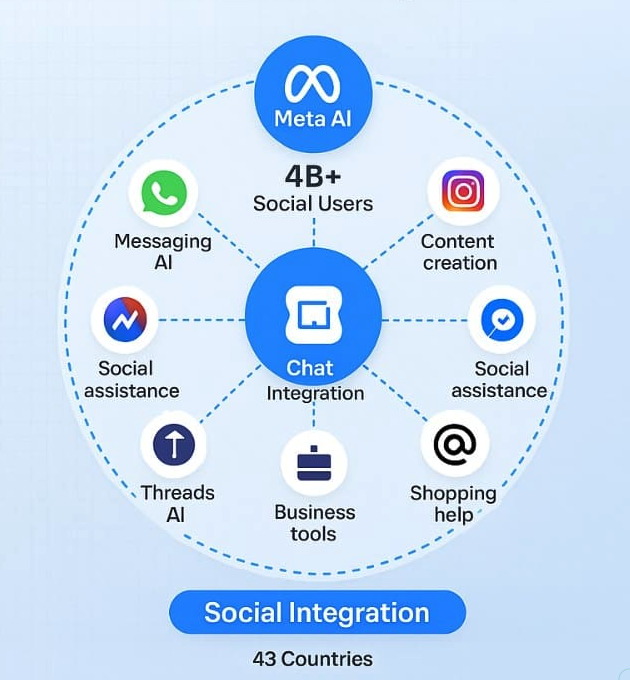Meta‘s artificial intelligence reach is beyond the U.S., granting select European and Asian nations access to its Llama AI model for national security purposes. The controversial decision deepens collaboration among democratic allies. The intention is to strengthen global defences in the face of rising technological competition, particularly from China.
What’s Happening & Why This Matters

Meta Platforms, the parent company of Facebook, Instagram, and WhatsApp, announced that it will extend access to its open-source Llama AI models to key U.S. allies. This includes France, Germany, Italy, Japan, South Korea, NATO, and the European Union. This access builds on a previous rollout to U.S. defence and national security agencies. It also extends to allied countries such as Australia, Canada, New Zealand, and the United Kingdom.
Meta stated the importance of equipping democratic nations with advanced AI tools to defend their interests. In its statement, Meta noted that U.S. agencies already have access to Llama to improve decision-making. Llama “thinking” also enhances mission-specific capabilities and boosts operational efficiency. The company hinted that additional countries may receive access in the future as international partnerships expand.

Meta’s decision demonstrates the strategic importance of ensuring Western-developed AI tools remain poignant, potent, and proactive. Extended access comes at a time when Chinese researchers have reportedly modified earlier versions of Llama. They support China’s own military programs, underscoring the geopolitical stakes tied to AI development.
Despite its national security applications, Meta maintains strict terms of service for Llama, explicitly prohibiting its use for military combat, espionage, or nuclear-related industries. However, the company frames its initiative as a way to ensure democratic nations control the most powerful AI systems. This prevents adversarial states from gaining an advantage in critical defence technologies.
Meta explained its philosophy clearly: “The U.S. and its closest allies should have the best tools at their disposal to defend themselves and keep their citizens safe.” This statement reflects a growing belief. Control over advanced AI is a new security battleground for the decades ahead.
The Competitive Pressure

The expansion of Llama access comes amid growing global competition for AI dominance. As AI systems become embedded in national defence, intelligence gathering, and cyber operations, the stakes are escalating. Reports of China’s modifications to older Llama versions illustrate the potential consequences. They state that if cutting-edge Western AI is not safeguarded and advanced at the same pace.
Meta’s strategy mirrors efforts by governments to build coalitions around technology standards and shared resources. By empowering allies with the latest AI tools, Meta strengthens a collective defence against cyber threats, misinformation campaigns, and other digital warfare tactics.
TF Summary: What’s Next
Meta’s decision to expand Llama access is a calculated action for innovation with geopolitical ramifications. If AI takes a centralised role in national security, democratic nations must collaborate closely and govern it effectively. Llama access protects shared interests and prevents rivals from gaining an edge. The rollout may sway future policy debates over the ethical, strategic boundaries of AI deployment.
MY FORECAST: Meta’s push accelerates AI-driven defence collaboration. Other innovators (e.g., Google and Microsoft) will seek or will be drawn into deeper global security alliances.
— Text-to-Speech (TTS) provided by gspeech


